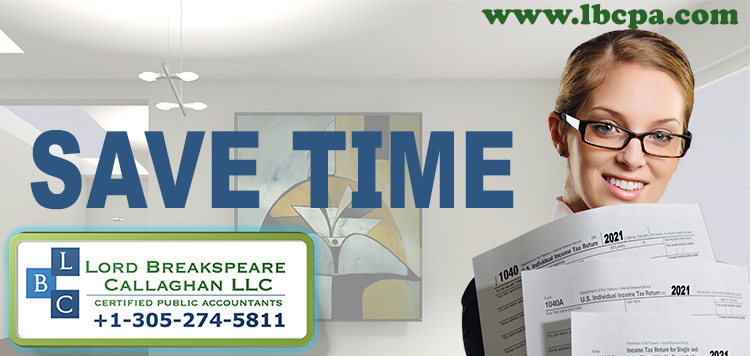LBCPA News 
Click here to go back
2021 tax extension filers don’t need to wait until October 17

WASHINGTON — The Internal Revenue Service is reminding the estimated 19 million taxpayers who requested an extension to file their 2021 tax return that they don't have to wait until mid-October to file. If a taxpayer has all the necessary information to file an accurate return, they can file electronically at any time before the October deadline and avoid a last-minute rush to file.
Taxpayers who requested more time to file an accurate return have until October 17, 2022. Those who have what they need to file, however, should file as soon as possible to avoid delays in processing their return.
Taxpayers who have questions can get help with most tax issues online or by phone. The IRS.gov website has free and easy to use online tools and resources to help taxpayers get answers 24 hours a day. Voice bots help callers navigate interactive voice responses to simple payment or notice questions, and quickly get responses to Frequently Asked Questions.
The Interactive Tax Assistant is a tool that provides answers to several tax law questions specific to individual circumstances based on input. It can determine if an individual must file a tax return, their filing status, if they can claim a dependent, if an income type is taxable, and their eligibility to claim a credit or deduct certain expenses.
The IRS advises individuals who still need to file a 2021 tax return to file electronically and, if due a refund, to choose direct deposit.
Filing electronically is fast, accurate and secure, and when an individual chooses direct deposit, their refund goes directly from the IRS into their bank or financial account getting them their refund in the fastest time possible. If they have a prepaid debit card, they may be able to have their refund applied to the card by providing the account and routing number to the IRS. The IRS processes most e-filed returns and issues direct deposit refunds in less than 21 days.
Eligible individuals can use the IRS Free File program to prepare and file their 2021 federal tax return for free. Taxpayers can choose the brand-name tax preparation software company that is best for them. Some even offer free state tax return preparation. Those who earned more than $73,000 have the option to use IRS Free File Fillable Forms.
MilTax online software is also available for members of the military and certain veterans, regardless of income. This software is offered through the Department of Defense. Eligible taxpayers can use MilTax to prepare and electronically file their federal tax returns and up to three state returns for free.
Volunteer Income Tax Assistance
The IRS's Volunteer Income Tax Assistance (VITA) program offers free basic tax return preparation to people who generally make $58,000 or less and people with disabilities or limited English-speaking taxpayers. While the majority of these sites are only open through the end of the filing season, taxpayers can use the VITA Site Locator tool to see if there's a community-based site staffed by IRS-trained and certified volunteers still open near them.
Tax professionals
There are also various types of tax return preparers who can help, including certified public accountants, enrolled agents, attorneys and others who don't have a professional credential.
Taxpayers should choose a tax preparer wisely. For individuals who want help with their taxes, the IRS online directory can assist in finding a tax professional in their area.
Get current on taxes
The IRS sends correspondence to a taxpayer's last known address, usually the address from their most recently filed tax return. If the taxpayer moves and does not send a change of address to the IRS, they may not receive an IRS notice and could miss the deadline to respond.
There's no penalty for not filing a return if due a refund, but there's also no statute of limitations for assessing and collecting taxes due if no return has been filed.
Interest is charged on any tax not paid by the April due date and will accrue until paid in full. Individual taxpayers are charged the federal short-term interest rate plus 3 percentage points, currently 5% per year, compounded daily. Penalties will accrue for each month tax remains unpaid until maxed out at 25% of the unpaid tax.
Submitting a tax return and paying any amount owed as soon as possible can help taxpayers avoid further interest and penalties.
Taxpayers who owe taxes can review all payment options online. These include paying taxes through an Online Account with IRS Direct Pay or paying by debit card, credit card or digital wallet. The IRS has options for people who can't pay their taxes, including applying for a payment plan on IRS.gov.
If you have any questions regarding accounting, domestic taxation, essential business accounting, international taxation, IRS representation, U.S. tax implications of Real Estate transactions or financial statements, please give us a call at 305-274-5811.
Source: IRS






